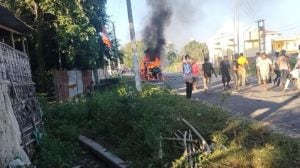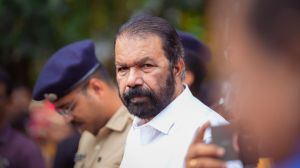Kin of Italian victims of Nazi killing want justice
MILAN, (ITALY), November 21: The families of 15 Italian partisans shot by the firing squad in 1944, aligned themselves on Thursday, with th...

MILAN, (ITALY), November 21: The families of 15 Italian partisans shot by the firing squad in 1944, aligned themselves on Thursday, with the prosecution case against a German security officer accused of ordering the executions.
A military court in Turin must decide on November 28, if Theodor Saevecke, a former captain in the Nazi secret police, has a case to answer.
Saevecke, now 86, is being charged with murder after allegedly selecting and then ordering the shooting of 15 Italian partisans in Milan, on August 10, 1944.
According to witnesses, their bodies were left where they were killed, for an entire day as a public warning to other partisans.
The executions followed the bombing of a German Army bus by members of the Italian resistance.However, prosecutors argued that Saevecke’s action amounted to murder rather than reprisal killings, because all six people killed in the bus bombing were Italian citizens.
A Nazi circular of the time declared that the German occupation forces could legitimately execute 10 Italians for every German killed by the resistance.
“It was an act of pure terrorism, carried out in classic Nazi style and aimed at frightening the population into withdrawing their support for the resistance,” said Sergio Fogagnolo, spokesman for the families of the 15 victims.
“Our goal is not to send an 86-year-old man to prison, but to uncover the historical truth behind this case and dignify the sacrifice made by those who resisted,” Fogagnolo said. Saevecke, who has been living in retirement in the countryside near Hamburg since 1971, denied all charges levelled against him and said he had no intention of surrendering to the Italian Judicial system.
“I am completely innocent,” Saevecke said, adding that he had never worn the uniform or been a member of the secret police.
During his wartime posting in Milan, Saevecke said he was an officer in the “criminal police” charged with “maintaining order against the communists who were killing Germans every day.”
He also made it clear that he would not be attending any court hearings in Italy.
“I have done nothing, and I don’t see why I should go there,” he said. After World War II, Saevecke worked for several years with the American Central Intelligence Agency, before returning to the German police force, in which he eventually rose to be deputy Chief of counter-espionage.



- 01
- 02
- 03
- 04
- 05




























